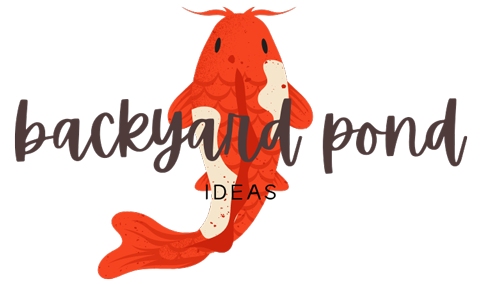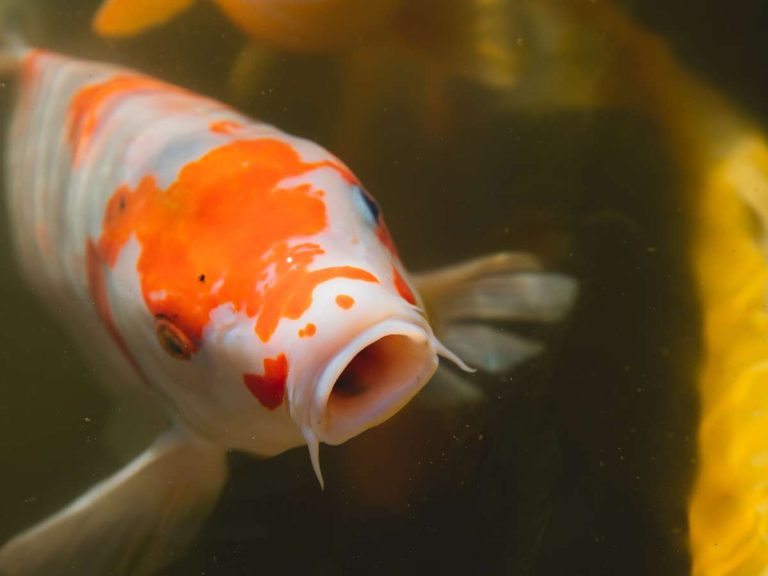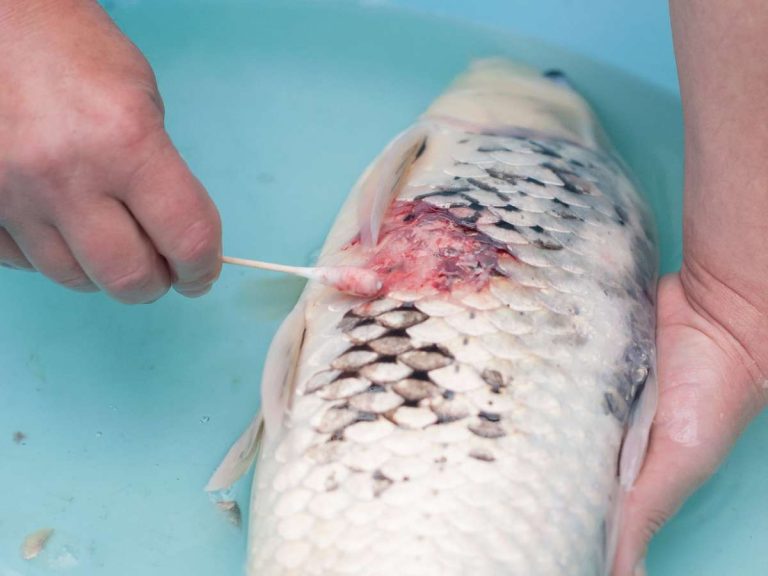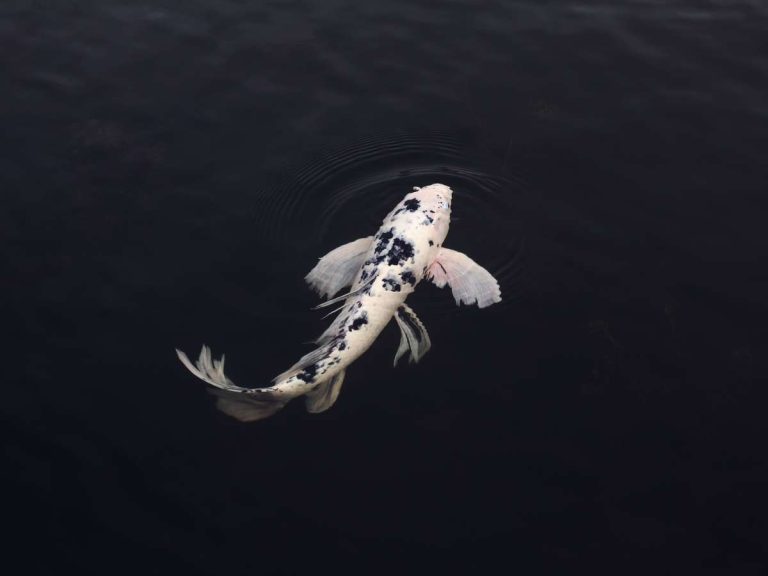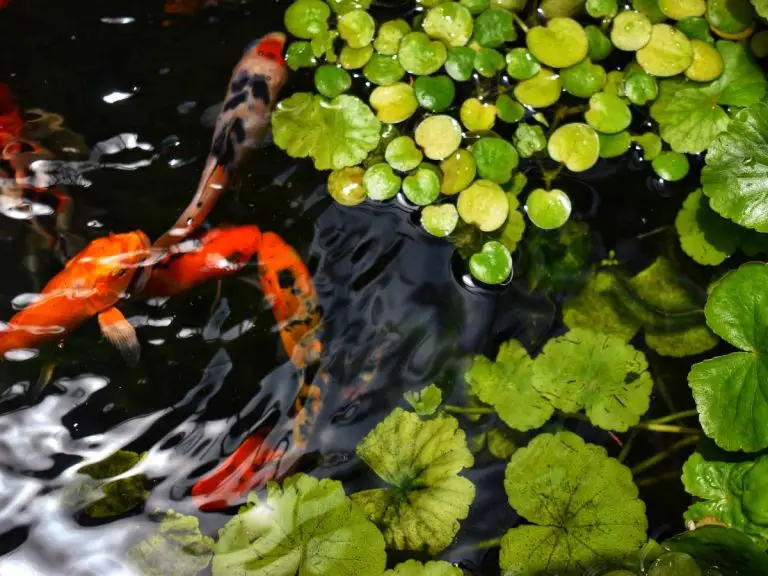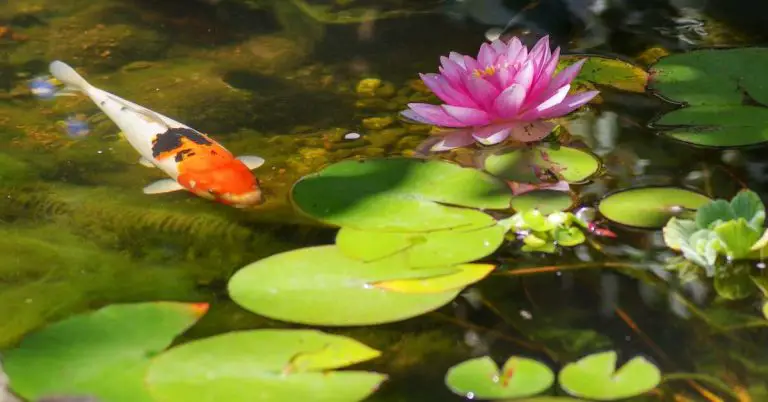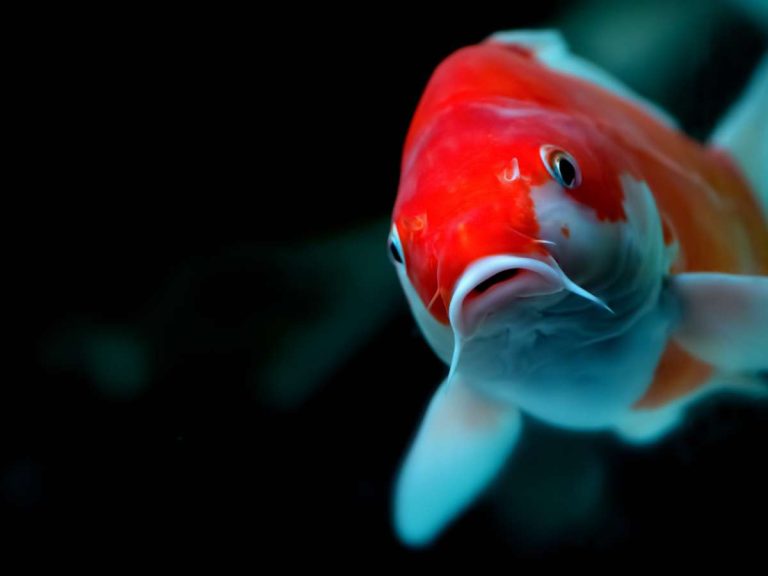Why Is My Koi Not Eating Food? Common Causes and Solutions for Appetite Loss
Wondering why your koi fish is not eating food? Don’t worry: there may be a totally normal reason that you can easily fix.
If your koi is not eating food, it could be due to a health issue, such as parasites or internal organ disorders. Alternatively, the food you are offering may not be providing sufficient nutrition, or it could be stale or spoiled. Seasonal changes, like fluctuations in water temperature and sunlight exposure, can also affect koi appetite. Additionally, stress or changes in their environment, such as poor water quality or overcrowding, can lead to appetite loss in koi fish.
So, if you want to uncover the reasons behind your koi fish not eating and find solutions to address the issue, keep reading! In this article we’re focusing on koi diet and nutrition, exploring how seasonal changes impact appetite, and providing suggestions to create a stress-free environment for your koi fish.
Let’s help your finned friend regain their appetite and return to their vibrant, lively self!
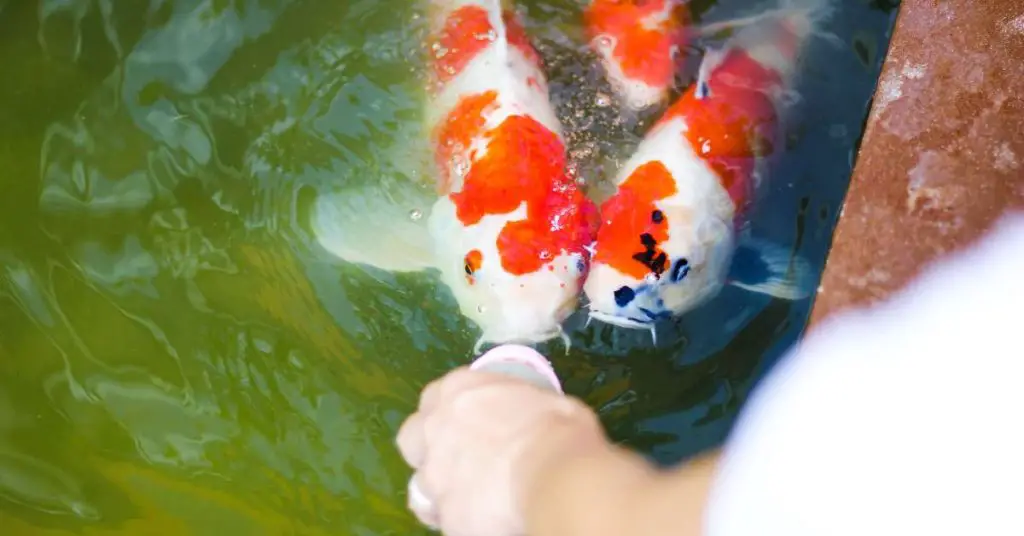
What is ‘normal’ eating for a koi fish
Before you understand why your fish might not be eating, you should know what health koi appetites should look (noting that every fish at every life stage will be somewhat unique).
Koi fish, known for their vibrant colors and graceful presence in ponds, have specific dietary needs to maintain their health and luster. Understanding what constitutes ‘normal’ eating for koi is essential for their well-being.
Diet Composition:
- Pelleted Koi Food: Commercially available koi pellets are formulated to provide a balanced diet. They come in various sizes and nutritional compositions, catering to the growth, maintenance, and color-enhancing needs of koi.
- Natural Diet: In their natural habitat, koi are omnivorous. They consume a mix of algae, insects, plants, and even small fish. Introducing aquatic plants and allowing natural algae growth in ponds can supplement their diet.
- Treats: Koi enjoy treats like fruits (e.g., watermelon, oranges) and vegetables (e.g., lettuce, peas). However, these should be given sparingly and as a supplement to their primary diet.
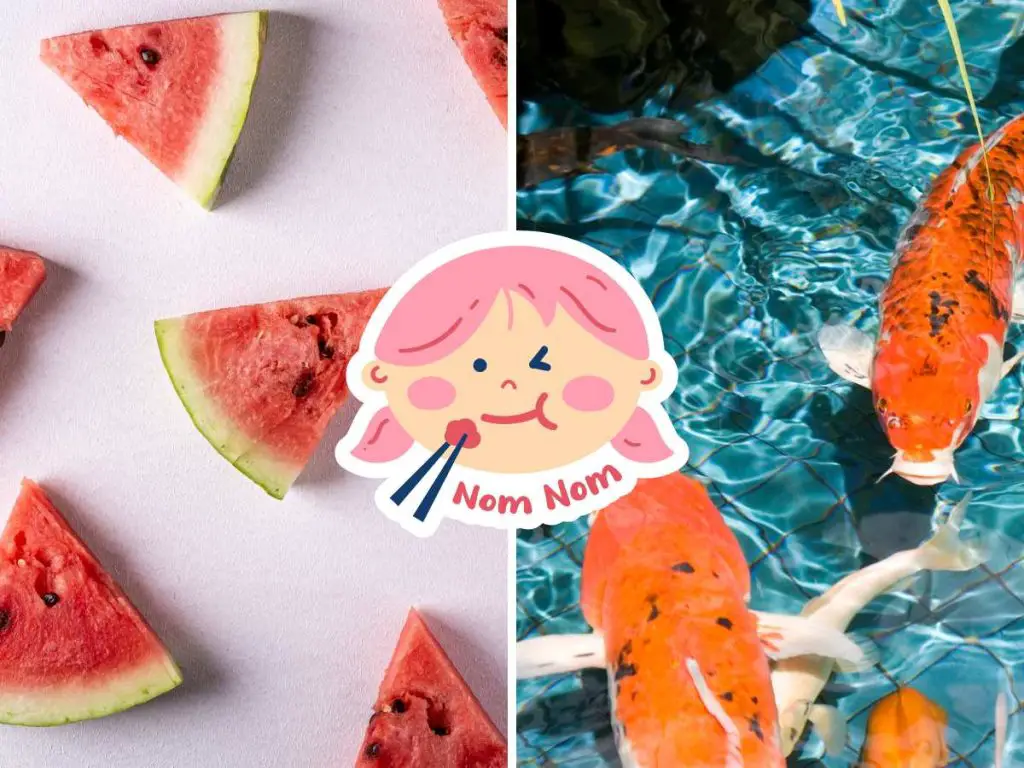
Feeding Frequency and Quantity:
- Frequency: During warmer months, koi have a faster metabolism and can be fed 2-3 times daily. In cooler temperatures, their metabolism slows, and feeding should be reduced.
- Quantity: A general rule is to feed an amount they can consume within 5 minutes. Overfeeding can lead to water pollution and health issues for the koi.
Factors Influencing Diet:
- Water Temperature: Koi’s appetite and digestion are closely tied to water temperature. They eat more in warmer temperatures and less or not at all during colder months (for example, you need to feed koi carp differently in winter).
- Age and Size: Younger koi, still growing, require more protein-rich food, while adult koi benefit from a balanced diet that supports maintenance.
- Health Considerations: Just like any other pet, koi may have specific dietary needs based on their health. It’s essential to monitor their behavior and appearance and adjust their diet accordingly.
In short, ‘normal’ eating for koi involves a balanced diet, appropriate feeding frequency, and an understanding of their natural behaviors and needs. Providing koi with the right nutrition ensures their health, growth, and vibrant appearance.
Just as important, monitoring their health on a regular basis is a fundamental practice that every koi owner should follow. After all, a healthy fish is likely to have a strong appetite and enjoy its meals. The more you get to know your fish and how their appetites, the easier it will be to see when something is ‘off.’
Why Are My Koi Fish Not Eating Food? 5 Major Reasons
There are many health issues that may affect a koi fish’s appetite. The following are the 5 most common.
| Reason | Description |
|---|---|
| Parasites and Infections | Symptoms include unusual coloration, spots, lesions, scratching. Anchor worm is a common parasite. |
| Internal Organ Disorders | Signs include bloating, abnormal swimming, changes in excrement. Often due to poor water quality or diet. |
| Diet and Nutrition | Ensure food provides essential nutrients. Avoid stale or spoiled food. Rotate food types for variety. |
| Seasonal Changes | Water temperature affects metabolism and appetite. Monitor and adjust feeding based on temperature changes. |
| Environmental Factors | Poor water quality, overcrowding, and changes in living conditions can stress koi and affect appetite. |
1. Parasites and infections
Parasites and infections, for example, can cause discomfort and make them lose interest in food. It’s important to be aware of common symptoms such as unusual coloration, visible spots or lesions, and excessive scratching against objects in the pond or tank.
One common parasite that can cause loss of appetite is the anchor worm. These worms attach themselves to the skin and fins, causing irritation and leading to a lack of interest in eating. Other infections, such as bacterial or fungal infections, can also disrupt their digestive system, making it difficult for them to consume food normally.
2. Internal organ disorders
Internal organ disorders, such as liver or kidney problems, can also impact a koi fish’s appetite. These disorders often result from poor water quality or improper diet. If a fish is experiencing issues with its organs, it may show signs of bloating, swimming abnormally, or have changes in excrement.
When assessing the health of your koi fish, take note of their behavior and appearance. Are they swimming and interacting with their surroundings as usual? Or do they seem lethargic and disinterested? A healthy koi fish is active, alert, and eager to explore its environment.
3. Diet and nutrition
When it comes to keeping your koi fish healthy and happy, their diet and nutrition play a crucial role. Just like humans, koi fish have specific dietary requirements and preferences. Understanding these requirements can help solve the mystery of why your koi fish is not eating.
Koi fish are omnivores, which means they consume both plants and small animals. Their diet should consist of a mixture of proteins, carbohydrates, fats, vitamins, and minerals. To ensure a balanced diet, feed them high-quality koi fish food formulated specifically for their nutritional needs.
If your koi fish is not eating, it’s worth examining the food you’re offering. There are a couple of issues that could be causing their lack of interest:
Inadequate nutrition: Check the label of the koi fish food to make sure it contains the necessary nutrients. Some low-quality or generic brands may not provide the essential elements that koi fish need to thrive.
Stale or spoiled food: Koi fish, like any living beings, prefer their food fresh. If the food has been left out for an extended period, it may have gone stale or even spoiled. Avoid offering them food that smells off or has an unusual appearance.
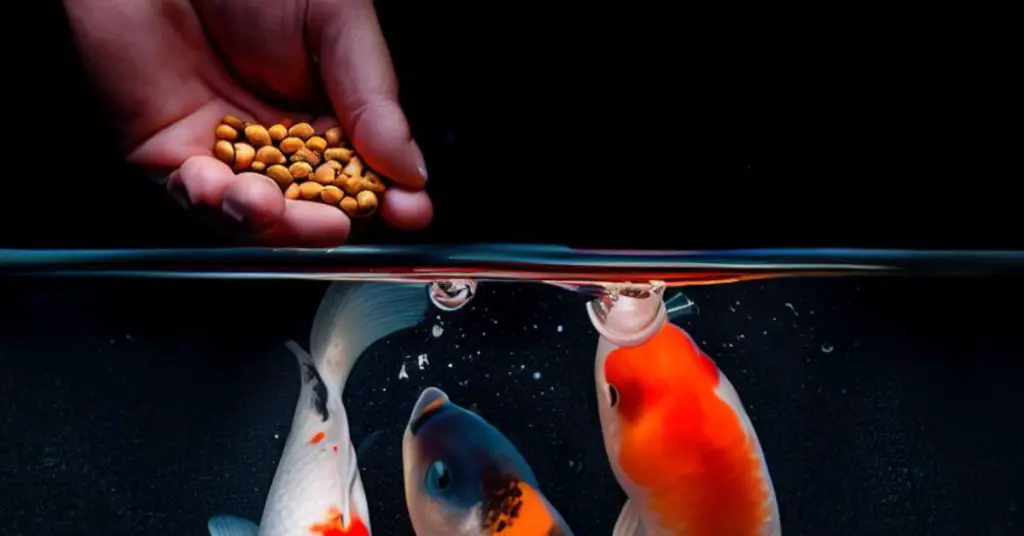
Finally, to encourage your koi fish to eat, it’s essential to provide them with a suitable and balanced diet.
To start, you might want to try different types of koi fish food. Offer a variety of food options, including pellets, flakes, and live or frozen treats like brine shrimp or bloodworms. This variety will keep their diet interesting and ensure they receive all the necessary nutrients.
And don’t be afraid to mix things up! Rotate between different brands and flavors of koi fish food to prevent boredom. Just like us, koi fish appreciate some variety in their meals.
4. Seasonal changes and feeding behavior
Seasonal changes can have a big impact on the behavior and appetite of koi fish. These majestic creatures are closely in tune with their environment, and as the seasons change, so do their habits. Understanding how these changes affect their feeding behavior is key to ensuring their health and well-being.
First, one major factor that can affect the appetite of koi fish is fluctuations in water temperature. As the weather gets colder, their metabolism slows down, and they become less active. This decrease in activity can also lead to a decrease in appetite. On the other hand, as the weather warms up, their metabolism speeds up, and they become more active, resulting in an increased appetite.
It’s important to keep track of the water temperature in your koi pond or tank to understand how it may be affecting their feeding behavior. A sudden drop or rise in temperature can cause a shift in their appetite, so it’s important to make adjustments accordingly.
The amount of sunlight koi fish receive can also impact their feeding behavior. During the summer months, when the days are longer and the sun is shining bright, koi fish tend to be more active and have a bigger appetite. This is because sunlight plays a crucial role in their digestion and overall health.
However, as the days get shorter and the sun becomes less intense, their activity level decreases, leading to a decrease in their appetite. This is a natural response to the changing seasons, and it’s important for pond owners to be aware of these changes and adjust their feeding routines accordingly.
| Water Temperature (°C) | How To Feed Koi |
|---|---|
| Above 10°C | Feed normally |
| 5-10°C | Feed sparingly |
| Below 5°C | Cease feeding |
5. Environmental factors and stress
When it comes to the health and appetite of your koi fish, it’s important to consider the environmental factors that may be causing them stress. Poor water quality, overcrowding in the pond or tank, and changes in their living conditions can all have a negative impact on their appetite.
First and foremost, you need to make sure that the water quality in their habitat is optimal. Koi fish are sensitive to changes in pH levels, ammonia, nitrate, and nitrite levels in the water. Regularly test the water parameters and maintain them within the appropriate range to ensure a healthy environment for your fish.
Overcrowding can also be a significant factor contributing to their loss of appetite. If you have too many koi fish in a confined space, they may feel stressed and compete for resources, including food. Consider relocating some of your fish to a larger pond or tank to provide them with more space and reduce stress.
Additionally, any changes in their tank or pond conditions can disrupt their eating habits. For example, introducing new tank mates, rearranging decorations, or even changes in water temperature can all be stressors for koi fish. They crave stability and familiarity, so try to maintain a consistent and peaceful environment to encourage their appetite.
Troubleshooting and problem-solving: Get your koi to eat!
Now, let’s dive into troubleshooting why your koi fish aren’t eating. Don’t worry, we’ll get to the bottom of this together!
Step-by-step guide to troubleshooting
First things first, let’s check the water parameters. Test the water for pH levels, ammonia, nitrate, and nitrite levels. Koi fish are sensitive creatures, and any imbalances in these levels can affect their appetite. Ensure that the water is clean and the parameters are within the appropriate range.
Next, let’s observe their behavior and appearance. Are your koi fish acting differently? Are they showing any signs of illness or distress? Look out for any physical changes like sores, discoloration, or unusual swimming patterns. These can all be indicators of underlying issues that might be causing the loss of appetite.
Potential solutions based on identified issues
If you notice any abnormalities in the water parameters, it’s crucial to address them promptly. Maintain good water quality by performing regular water changes and using appropriate filtration systems. Consider investing in a reliable water testing kit to keep track of the water parameters consistently.
If you suspect that your koi fish may have diseases or parasites, it’s crucial to isolate them immediately.
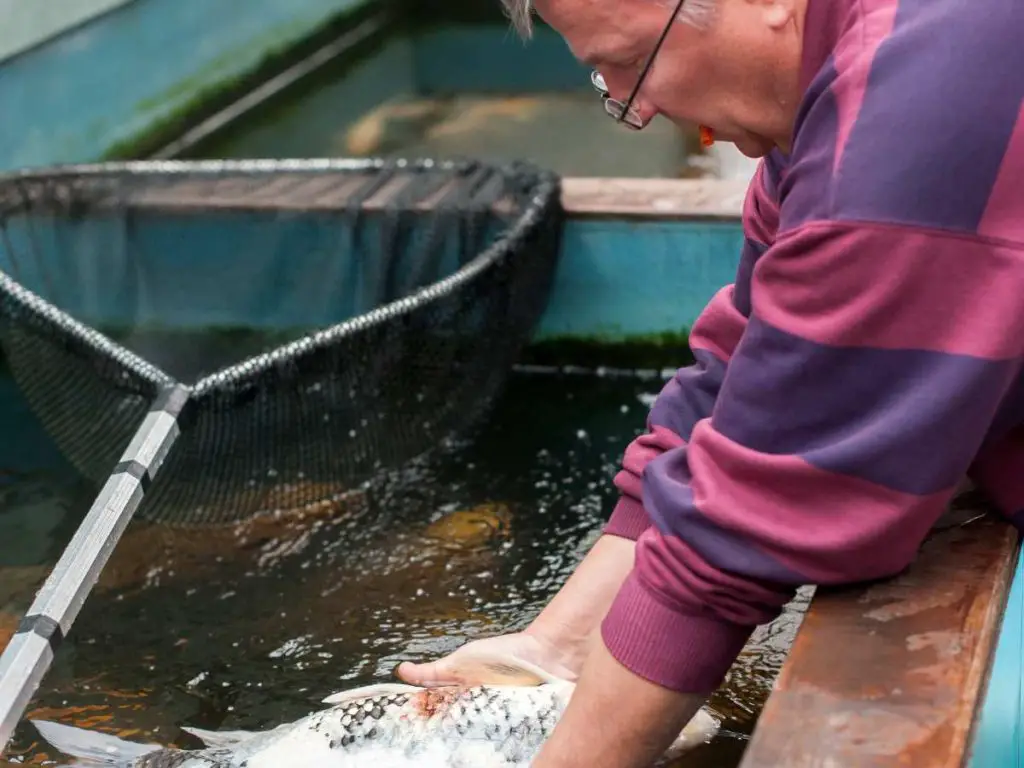
And it’s always smart to contact a vet or a professional fish expert for an accurate diagnosis and suitable treatment options. Remember, early detection and treatment are essential for the well-being of your beloved koi fish.
How to encourage koi fish to eat
When your beloved koi fish refuse to gobble up their food, it’s natural to feel concerned. But fret not, there are several tips and tricks you can try to stimulate their appetite and get them eating again!
Timing and frequency of feeding
First things first, it’s important to establish a consistent feeding schedule for your koi fish. These finned friends thrive on routine, so try to feed them at the same time every day. Aim for two to three smaller meals instead of one big feast, as this mimics their natural feeding behavior. It’s like having a light breakfast, a healthy snack, and a delicious dinner.
Feeding techniques and presentation
Just like humans, koi fish enjoy a little variety in their diet. Instead of always tossing pellets into the pond, switch things up by offering them live or frozen treats. You can try bloodworms, daphnia, or even small aquatic insects. This can pique their interest and entice them to eat. Additionally, some koi fish appreciate the challenge of hunting for their food. You can place the pellets or treats in a floating ring or a feeding ball, making mealtime an exciting treasure hunt.
Not only that, but the presentation of the food can also make a difference. You can sprinkle the pellets on the water’s surface to mimic falling rain, which appeals to their natural foraging instincts. Alternatively, you can pre-soak the pellets in water or a nutrient-rich liquid to make them softer and more appealing. It’s almost like having sushi instead of dry toast!
Environmental enrichment to promote feeding behavior
Imagine living in a dull and unstimulating environment—it wouldn’t exactly inspire a healthy appetite, would it? Well, the same goes for your koi fish! Creating an enriching environment can help stimulate their feeding behavior. Consider adding floating plants, rocks, or even a fancy fish feeder toy that dispenses treats. These additions provide mental and physical stimulation, making mealtime exciting and engaging.
And don’t forget about the power of socializing! Koi fish are social creatures, and having companions can boost their appetite. If your fish are currently alone, maybe it’s time to introduce some new friends to the pond party. Watching their fellow fish dig into a delicious meal may encourage the hesitant eater to join in.
Overall, when your koi fish seem disinterested in food, it’s time to get creative. Mix up their diet, present the food in enticing ways, and provide them with an environment that sparks joy. Remember, happy koi fish are healthy and hungry koi fish!
Conclusion
So, if you’ve been wondering why your koi fish aren’t eating, you’re not alone. It’s a common concern among pond owners, but the good news is that there are several potential reasons for this behavior and plenty of solutions to explore.
Key Takeaways
- Monitoring overall health of koi fish
- Possible dietary issues and solutions
- Impact of seasonal changes on appetite
- Environmental factors and stress affecting appetite
- Troubleshooting steps and problem-solving
- Tips for encouraging koi fish to eat
Remember, understanding why your koi fish aren’t eating is the first step towards finding a solution. If you’ve tried our suggestions and the problem persists, consider reaching out to professionals for further exploration and guidance. Your koi fish deserve a happy and healthy life in your pond, and with a little patience and knowledge, you’ll be able to get them back to their feeding routine in no time!
Related Questions
Can water temperature affect the appetite of my koi fish?
Yes, water temperature can have a significant impact on the appetite of koi fish. Cold water can slow down their metabolism and make them less interested in eating, while warmer water can increase their appetite. It’s important to monitor and maintain the appropriate water temperature for your koi fish to ensure their overall health and well-being.
Will changing my koi fish’s diet help if they are not eating?
Changing your koi fish’s diet might be worth considering if they are not eating. Sometimes, their lack of appetite can be due to boredom or a dislike for the current food being offered. By introducing different types of koi fish food and providing variety in their diet, you may be able to stimulate their appetite and encourage them to eat. However, it’s important to make any dietary changes gradually and monitor their response to ensure they are getting the necessary nutrition.
